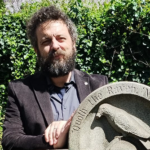 GEORGE KAZANTZIDIS
GEORGE KAZANTZIDIS
Title
Speech impairment in Greek antiquity: Some methodological issues
Abstract
Ancient Greek sources yield an incredibly rich vocabulary on speech impairment and speech difficulties more generally. To name just a few examples: ischnophonos describes someone who ‘stutters’; traulos is applied to instances of ‘lisping’ or, specifically, to the mispronouncement of letters; failure to pronounce correctly the letter sigma qualifies someone as psellos, whereas mogilalos is employed in contexts where speech difficulties (ranging from the use of odd syntax to a patient’s inarticulate speech to silence and the total collapse of verbal communication) occur as a side-effect of a medical condition, physical or mental. The list could go on.
In this paper, I will present a selection of these terms; I will try to situate them briefly in their literary, cultural and historical contexts, and I will address some important methodological issues that are relevant to the material under discussion. Some of the questions I will be concerned with are: the (potential) fallacy of retrospective diagnosis and the dangers of anachronism involved in the process; the reasons why the Greeks felt the need to create all sorts and kinds of different distinctions when it came to speech difficulties; the function of speech impairment as a disabling and, ultimately, socially isolating agent; and, finally, its crucial and insistent appearance as a sign and symptom of mental pathology in the ancient Greek imagination.
Bio
George Kazantzidis (DPhil Oxon. 2011) is Associate Professor of Latin Literature at the University of Patras, Greece. He is primarily interested in the history of emotions and the history of mental illness in Greek and Roman antiquity. His publications include a monograph on Lucretius (Lucretius on Disease: The Poetics of Morbidity in De rerum natura, De Gruyter, 2021) and a number of edited volumes, among which the most recent ones are: Horror in Classical Antiquity and Beyond: Body, Affect, Concepts (Bloomsbury, 2024, with Chiara Thumiger); Body and Machine in Classical Antiquity (CUP, 2023, with Maria Gerolemou); and Medical Understandings of Emotions in Classical Antiquity (De Gruyter, 2022, with Dimos Spatharas). In the Spring Term of 2024 he was a Visiting Associate Professor of Classics at Johns Hopkins University. In 2025-2026 he will be joining the School of Historical Studies at the Institute for Advanced Study in Princeton where he will pursue a project on madness and economy in the Greek and Roman world.

